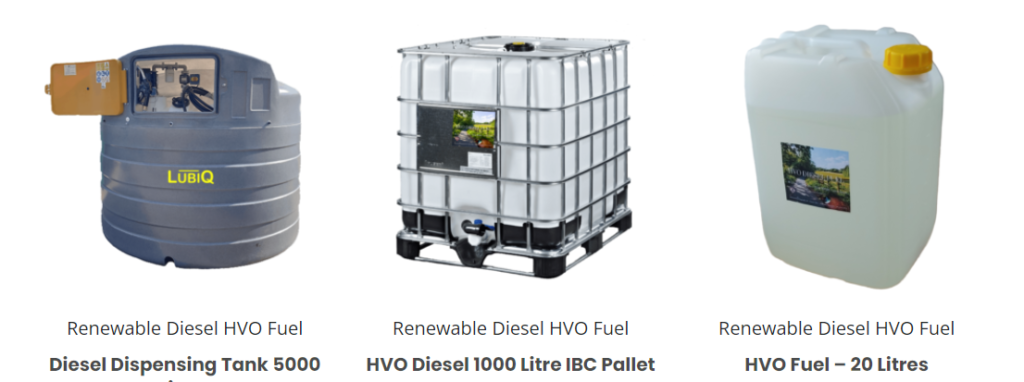Is Premium Diesel Worth It?
The question often comes up when users experience blocked DPF (diesel particulate filter) or fuel filter clogging and modern synthetic fossil-free premium diesel fuels like GTL (gas-to-liquid) or HVO can be well worth looking at to solve these issues.

Some clients have acquired a new car, van, or boat, and are happy to pay more for a genuine premium diesel but want to understand why the fuel is what it claims to be. For example, is premium diesel better for DPF problems?
Read on for an analysis of the so-called and the real premium diesels and which are really worth it.
What Is A Premium Diesel?
There are several higher priced premium diesel fuels out there from Jet, bp, and Esso and among mineral fossil diesel options there is really 2 factors: detergent level, and the fuel’s cetane number.
When we come to LubiQ Fuels HVO fossil free renewable diesel there are more factors, namely that it is a synthetic super fuel from the ground up!
So, what is the claimed difference with fossil premium diesel fuels? The higher detergent content helps to clean the engine, and the higher cetane number than standard white diesel assists with combustion quality.
The HVO Difference – Being Synthetic
When asking is premium diesel worth it? It is clear from the points above that the bulk of fuels carrying this label are not very different from standard EN940 white diesel; therefore, we could be heading to the answer, ‘no it is not hardly worth it’.
Fossil diesel is one fraction from the distillation of crude petroleum along with petrol, bunker fuel, kerosene, and LPG, the key point is that this is a natural product containing variabilities, aromatics, and sulphur.

Even if labelled ‘premium’ it is not a purpose-designed ideal fuel for compression ignition engines but rather the accepted high-availability and low-cost source from present UK infrastructure at the Humber, Southampton Water, Ellesmere Port, Pembroke, and Grangemouth.
With HVO diesel from Coryton Fuels being used to break the world water speed record in the Lake District, this can certainly claim to be a premium low emissions diesel fuel.
The exciting thing is that there is a recent arrival that really is a premium diesel that is worth it, which is called HVO. Hydrotreated vegetable oil is a fossil free synthetic diesel fuel that is made from consistent length molecule chains, has very little smell, extremely clean burn (according to MTU a drop of 80% in diesel particulates) and excellent eco-friendly credentials.

HVO is a true premium diesel to reduce blocked DPFs and fuel filters, reduce AdBlue usage and improve engine smoothness while, because it is made from waste, also cuts net greenhouse gas emissions by upto 90%. It also has a higher cetane number of 70 than any mineral fossil diesel.
Cutting Air Pollution With Fossil Free Diesel
HVO is also known as renewable diesel and should not be confused with FAME biodiesel. Using HVO brings a cut in harmful NOx emissions, and it is a highly practical fuel that can be mixed in any proportion with normal white diesel.
This makes it easy to switch and there is no need to change your tanks and pumps or the vehicles themselves.

There is such thing as red or rebated HVO diesel for use only in agriculture, marine, or train applications. There is discussion about using it as a renewable heating oil, but it would be rather expensive at the time of writing.
Look at our HVO fuel to find that the answer is actually YES to the question is premium diesel worth it?
Have a look at the Neste video below for information on current and future wastes and residues feedstocks for manufacturing HVO renewable diesel fuel and SAF:
